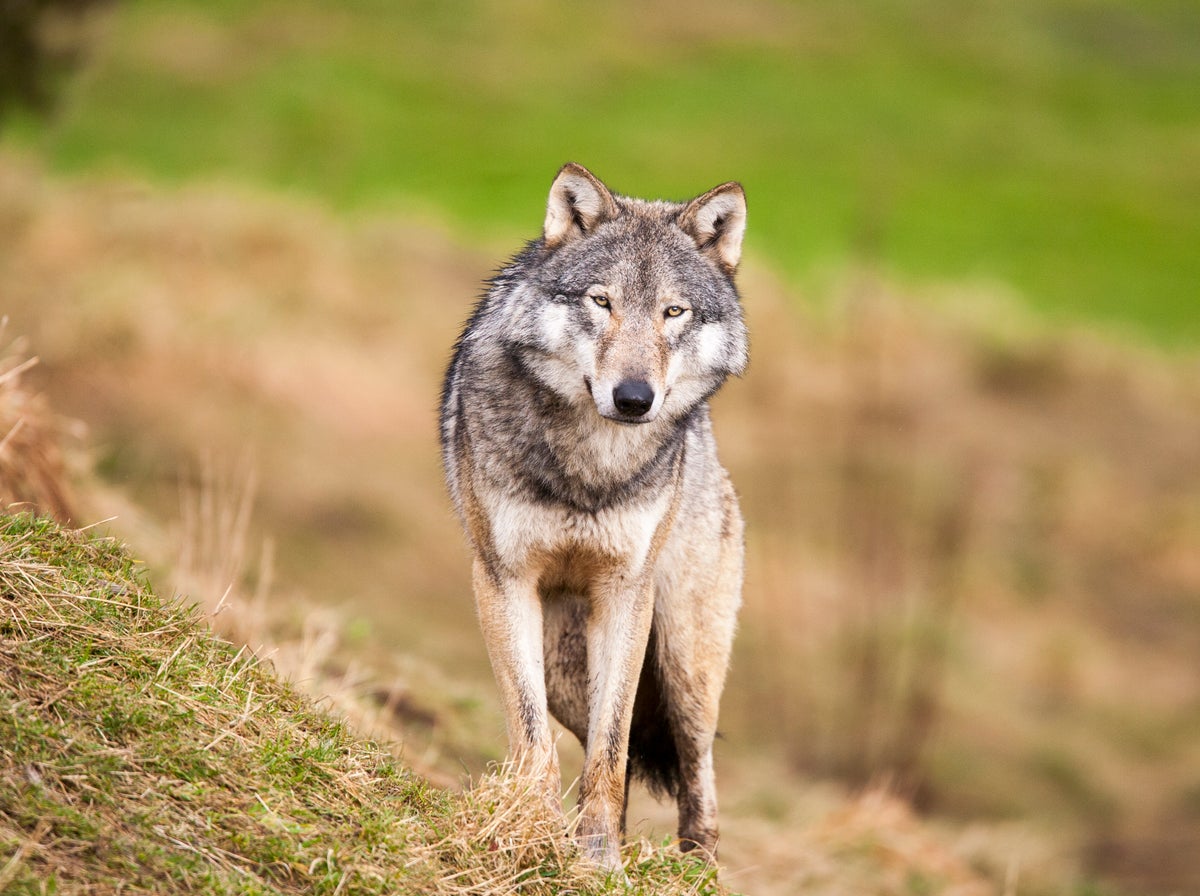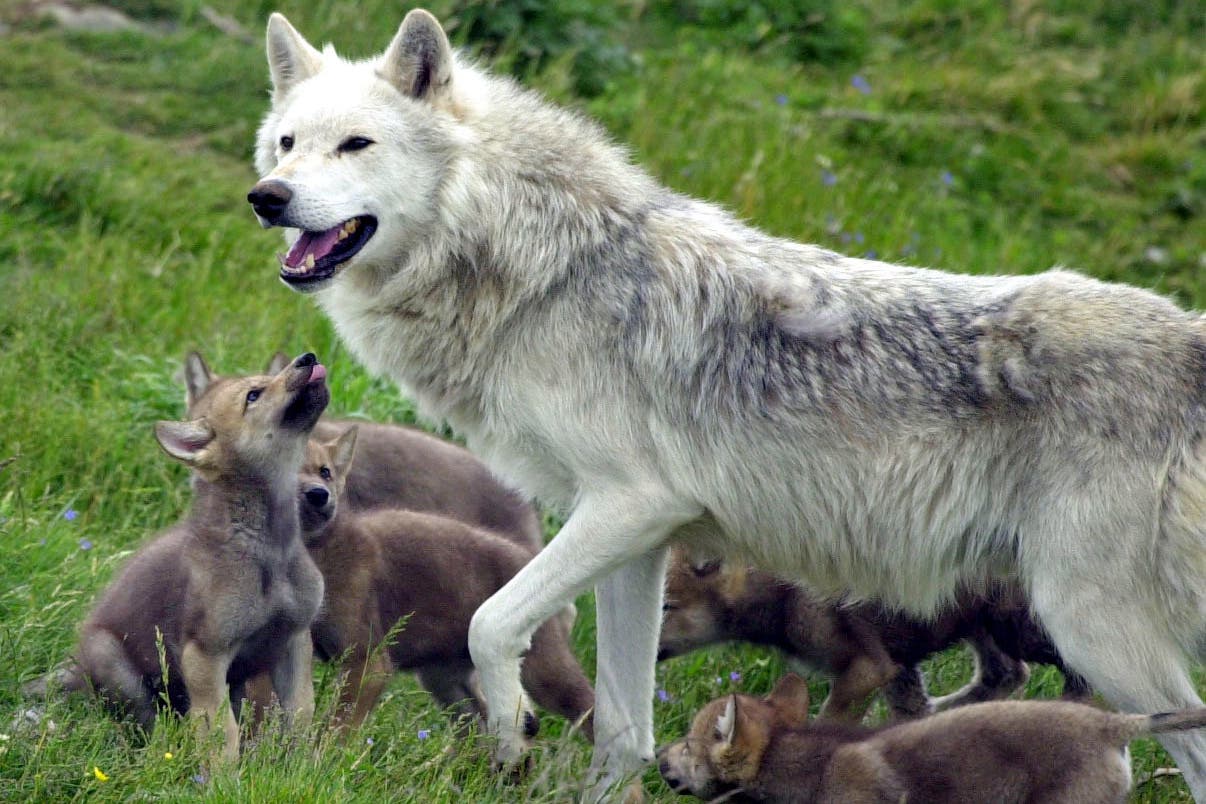
Scientists have suggested reintroducing dozens of wolves into the Scottish Highlands in order to help the UK reach its climate targets.
Researchers at the University of Leeds have suggested that the reintroduction of grey wolves to the Cairngorms, as well as the south-west, north-west and central Highlands, could help reduce the issue of red deer eating tree saplings, which stops natural woodland regeneration.
The scientists predicted that a population of 167 wolves would thrive if reintroduced into the wild and would be enough to reduce red deer populations to a level that would allow trees to regenerate naturally.
This could expand the native woodland, which could take in and store a million tons of carbon dioxide each year, equating to about five per cent of the carbon removal target for UK woodlands, researchers said.
Each wolf would lead to an annual carbon uptake capability of 6,080 tonnes of CO2, which the researchers estimated would make each of them “worth” £154,000, according to the accepted current valuations of carbon.
It’s the first time that the impact of reintroducing wolves for woodland expansion and carbon storage in the UK has been assessed.

Wolves were eradicated from Scotland about 250 years ago, leaving deer with no natural predators. The wolf population in Western Europe is approximately 12,000. Meanwhile, British deer numbers have increased from about 450,000 to two million today.
The research, published in the peer-reviewed journal Ecological Solutions and Evidence journal, acknowledged the idea is controversial, not least with farmers worried about livestock.
Researchers acknowledged the idea’s potential controversies when it comes to farmers’ livestock. The growing number of wolf numbers in Europe previously led to their protected status being downgraded in 2024, which appeased farmers, but caused concern for environmentalists.
Co-author of the study, Lee Schofield, said that they recognised “that substantial and wide-ranging stakeholder and public engagement would clearly be essential before any wolf reintroduction could be considered".
He said the aim was to "provide new information to inform ongoing and future discussions about the possibility of wolf reintroductions both in the UK and elsewhere".
The study’s lead author, Prof Dominick Spracklen, said: “There is an increasing acknowledgment that the climate and biodiversity crises cannot be managed in isolation.
“We need to look at the potential role of natural processes such as the reintroduction of species to recover our degraded ecosystems and these in turn can deliver co-benefits for climate and nature recovery.”







